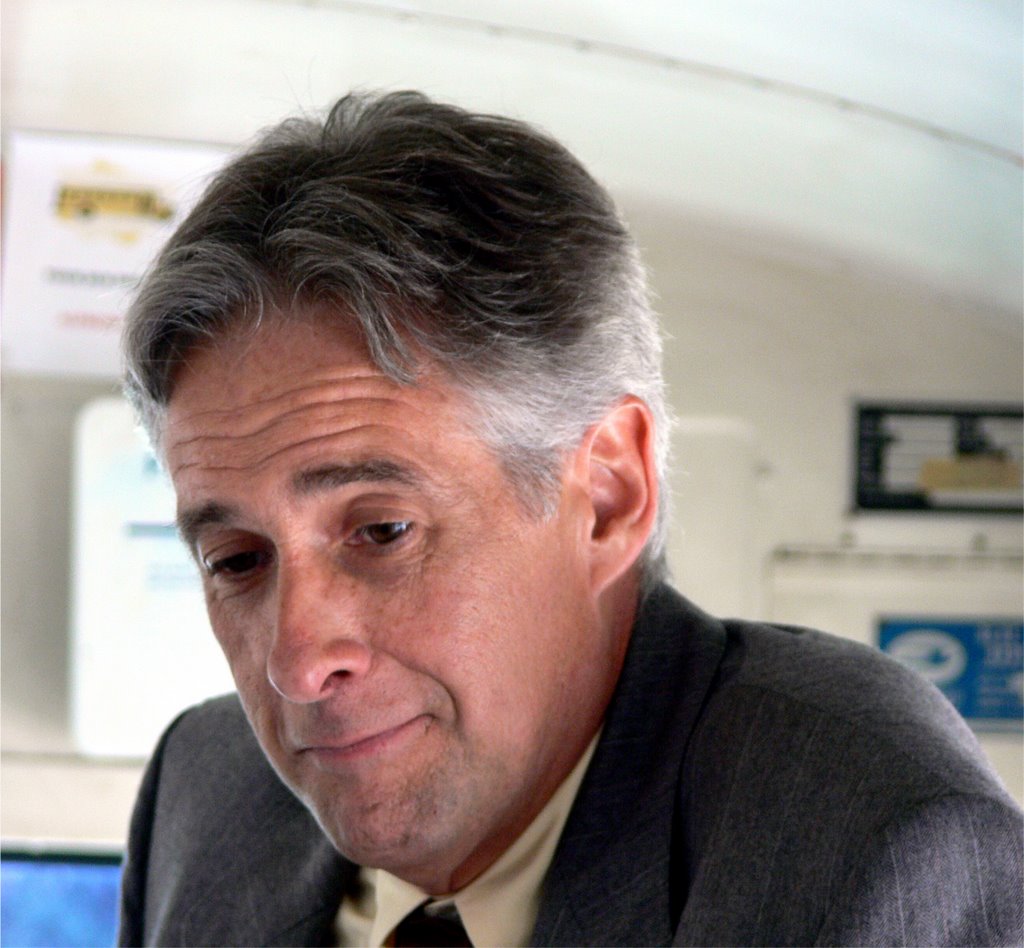VIA MI AMIGO CLEM
Cuban Tourism
Headed South
REPORTAJE: El futuro de Cuba
El maná del turismo se agota
La desidia y la mala gestión llevan al declive de un
sector clave para la economía del país
MAITE RICO - Madrid - 14/07/2007
Nadie podía negar que las autoridades cubanas se
habían esmerado. La 27ª Feria Internacional de Turismo
de La Habana ofrecía el pasado mayo una "fiesta de sol
y mar" a los profesionales del sector. Sólo a ellos.
La prensa extranjera acreditada en la isla tenía
vedado el acceso. Y es que las sonrisas oficiales no
lograban disipar los nubarrones estadísticos. El
turismo había entrado en caída libre en el primer
bimestre del año (temporada alta), con un descenso en
febrero del 13% respecto al mismo periodo de 2006, que
a su vez había disminuido un 7% respecto a 2005. El
sueño triunfalista del "turista 2,5 millones" saltaba
por los aires.
"Las cifras están maquilladas. La realidad es peor",
dice un empresario español vinculado al sector
hostelero cubano. "Acabo de regresar de allí. La
Habana está muerta. Los hoteles andan medio vacíos y
los locales, desiertos". Según el economista cubano
Carmelo Mesa-Lago, profesor emérito de la universidad
de Pittsburgh, la ocupación hotelera pasó del 63,5% en
2004 al 55,7 % en 2005, y a alrededor del 50% en 2006.
El régimen cubano esgrime justificaciones externas:
desde el encarecimiento de los vuelos por la subida de
los precios del petróleo al recuerdo de los ciclones
de 2005, pasando por las restricciones de viajes
impuestas por Estados Unidos. Los expertos miran al
interior de la isla: el sector, locomotora de la
moribunda economía cubana, es víctima de los
despropósitos oficiales, la mala gestión y la
desmoralización en las que sucumbe la isla.
En 2004, Fidel Castro ordenó que las Fuerzas Armadas
(es decir, su hermano Raúl) asumieran el control del
turismo. En teoría, para combatir la corrupción y
mejorar la gestión. De hecho, para tener aferrado un
sector estratégico que genera anualmente 2.400
millones de dólares (uno 1.800 millones de euros) y
proporciona empleo a 300.000 personas.
El resultado de la administración castrense es, a
decir de los entendidos, un desastre. "La rigidez
mental y la cerrazón política son incompatibles con la
apertura y la agilidad que necesita el turismo",
afirma el empresario español, que quiere mantener el
anonimato. "Un hotel no es un cuartel".
El empeño del régimen en castigar a la moneda
extranjera ha convertido a Cuba en un destino caro. La
revalorización del peso convertible cubano en cerca de
un 20% frente al dólar (las casas de cambio entregan
80 pesos por 100 dólares) ha disparado unos precios
que no se corresponden con un servicio más que
deficiente.
La falta de bombillas, la suciedad, las carencias en
los alimentos y el deterioro de las instalaciones son
la tónica dominante en hoteles capitalinos que cobran
por encima de los 150 dólares por habitación. La
asociación de operadores de Canadá, principal emisor
de turistas hacia Cuba, protestó el año pasado ante el
Gobierno cubano por el servicio hostelero, los robos
en hoteles y el costo de combustible para aviones, un
33% más caro que en otros destinos.
La pretendida lucha contra la corrupción, por otro
lado, está castigando a los eslabones más débiles,
porque, según un funcionario español del sector
turístico que conoce bien Cuba, "ha cortado las únicas
vías de escape que tenían los empleados para
sobrevivir, desde el robo de comida en el almacén
hasta las propinas, que ahora se las retienen. El
antiguo chollo que era lograr un puesto de trabajo en
la hostelería, donde un camarero vivía mejor que un
ingeniero o un médico, ya no lo es".
El desánimo de los empleados se entiende mejor si se
tienen en cuenta sus condiciones laborales, propias de
lo que el opositor cubano Carlos Alberto Montaner
define como "capitalismo mercantilista. Las empresas
extranjeras se ponen de acuerdo con el poder político
para explotar a una masa trabajadora que no puede
defenderse", explica. "En la hostelería, las cadenas
españolas, como Sol Meliá, han constituido sociedades
mixtas con una dictadura que retiene al trabajador el
95 % del salario".
El empresario español rechaza hablar de explotación
("a todos nos gustaría incentivar a los trabajadores,
pero no podemos", dice), pero reconoce que las
condiciones son draconianas. "Los grupos españoles
pagan al Estado cubano entre 300 y 400 euros al mes
por trabajador. El Estado cubano le da al trabajador
entre 200 y 250 pesos cubanos (unos 10 o 12 euros)".
En mayo, el ministro de Turismo, Manuel Marrero,
hombre de confianza de Raúl Castro, anunciaba
inversiones millonarias para mejorar las
infraestructuras y frenar el declive turístico. Un mes
después, La Habana rebajaba en un 20% las tarifas de
aterrizaje. Sin embargo, varios analistas, como el
economista disidente Óscar Espinosa Chepe, sostienen
que, en el fondo, el régimen está deshaciéndose de un
sector que siempre ha detestado, por su miedo a la
"contaminación ideológica". Las subvenciones del
presidente venezolano, Hugo Chávez, que ha sustituido
a la antigua Unión Soviética como madre nutricia de la
improductiva economía cubana, han fortalecido al
régimen, que ya tiene para completar la cartilla de
racionamiento y "no quiere ver turistas zascandileando
por el país", dice el funcionario español. "Lo que
menos les estorba son los paquetes todo incluido, que
pueden controlar: 15 días en los Cayos o Varadero,
tostándose al sol, lejos del cubano de a pie, que
tiene prohibida la entrada en esos paraísos". En suma,
el apartheid caribeño.
© Diario EL PAÍS S.L. - ] - Tel. 91 337 8200
© Prisacom S.A. - ] - Tel. 91 353 7900


